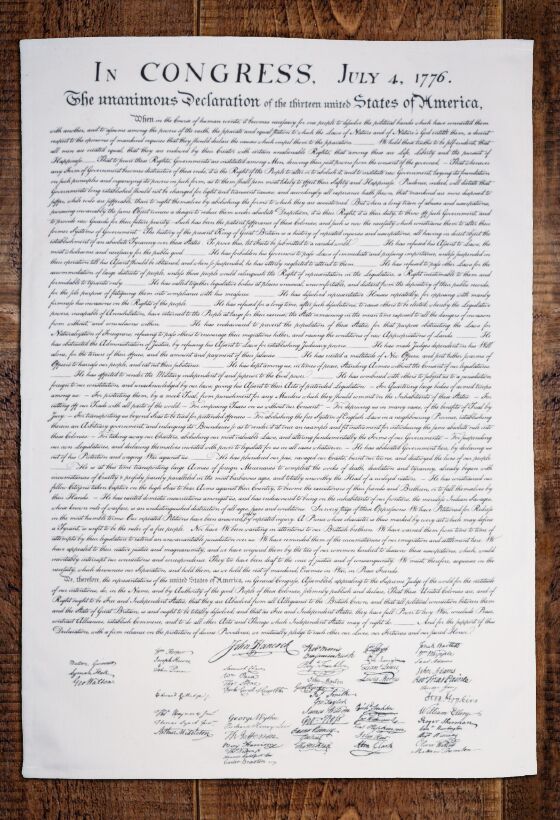Abigail Adams and the Letter that Sparked a Revolution
Posted by Pete on Nov 29th 2019
In November 1775, Abigail Adams wrote to her husband, John, that the Thirteen Colonies must split with Britain for good. King George’s refusal to recognise American liberties meant that independence was the only answer. Abigail’s defiant attitude captured the spirit of a nation which had resolved to fight for its rights.
It’s often forgotten, but those who end up as revolutionaries tend to start out as reformers.
America’s founders are a case in point.
When the Thirteen Colonies began to strain under increased British interference after the Seven Years War (1756-63), many colonists wanted to settle these grievances without resorting to independence.

An Olive Branch From Philadelphia
Even after the first shots had been fired at Lexington and Concord, there were plenty in the Continental Congress who still sought reconciliation with Britain.
In July 1775 (nearly a year before the Declaration of Independence), an ‘Olive Branch petition’ was sent from Philadelphia to King George III, stressing that the Colonies’ loyalties were still with the Crown and that they were only fighting against the oppressive policies of his ministers.
It has often been the role of the rich and powerful to spark history’s great revolutions by being irredeemably out of touch, and on this occasion the King played his part perfectly.
George's answer to the Olive Branch petition arrived in November and it was, shall we say, decisive.
No concessions to the colonists' demands were offered.
The rebels would surrender now and be forgiven for their insolence, or they would be executed.
On receiving this stone-cold response from England, the colonists, abandoning hope of reconciliation, resolved to fight for total independence.
The King's greedy refusal to compromise had turned the war in America from a tax revolt into a full-scale revolution.

Back in stock - click to see this declaration of independence preserved on a tea towel
'Let us renounce them': a call for American Independence
But the American who expressed this new commitment to the struggle most clearly was not any congressman or general.
It was Abigail Adams, who in November 1775, wrote a passionate letter to her husband John, incorporating some delightfully colorful imagery:
“Let us separate, they are unworthy to be our Brethren. Let us renounce them and instead of supplications as formerly for their prosperity and happiness, let us beseech the Almighty to blast their councils and bring to Naught all their devices.”
In few places did America’s new spirit of defiance find better expression.
Abigail, who would go on to become the most politically active First Lady of the early United States (1797-1801), was a huge intellectual influence on John Adams throughout his life, as well as his closest political advisor.
She was like an 18th century Eleanor Roosevelt.
Without a doubt her bold call to renounce English rule played a part in John’s decision to join with the rest of the revolutionaries in 1776.
It points to a much bigger role in American independence than America's founding mothers are often given credit for.
Adams herself was also an advocate for women's rights and the abolition of slavery — you have to wonder how the United States might have turned out if the founding mothers had more of an influence.

Click to browse tea towels celebrating Abigail Adams and other founding mothers
Abigail Adam's: a founding mother
Most accounts of what inspired the Declaration of Independence focus on the great texts of 17th and 18th century liberal thought: works like John Locke’s Two Treatises of Government (1689) and Thomas Paine’s Common Sense (January 1776).
But the subtler influences like Abigail Adams' fiery letter to John deserve to be remembered, too.
Abigail’s absolute commitment to the right of self-government stands tall at the beginning of the American story, alongside the radicalism of the Boston Tea Party and the heroics at Saratoga and Yorktown.
No story of America's founding is complete without it.
Explore our full collection of designs honouring the heroes of America's Radical History
